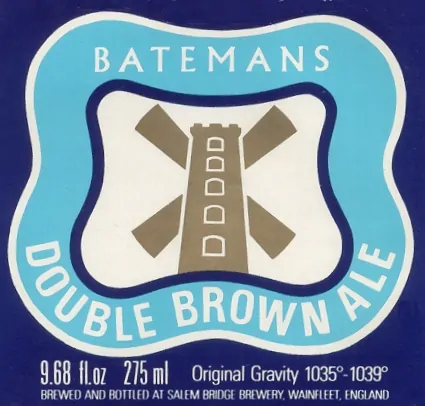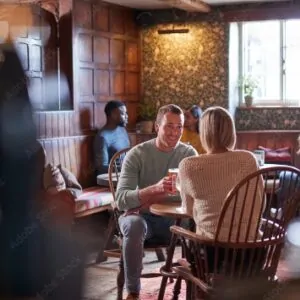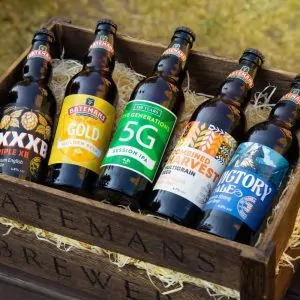In 1974 Batemans celebrated its Centenary at the Brewery, inviting Brewery staff, publicans and industry colleagues.
It was sad that Harry Bateman was not able to witness this, as he died in 1970, at the age of 86, but the company had developed without him and now had 99 pubs and three hotels.
When Harry died, he left his shares to George, John and his daughter Helen, who was not actually active within the Brewery, but still lived locally.
The remainder of the shares lay in the hands of Jessie Bateman, Harry’s sister. When Jessie died, her shares were divided equally between the three siblings.
It was hoped that the way the shares had been distributed would help to retain the company’s independence for generations to come. However, as it turned out, this was not to be.
Throughout the 1970s smaller brewers remained under pressure, as the market was being dominated by the National Brewers, ‘The Big Six’; Whitbread, Bass, Allied Breweries, Scottish and Newcastle, Courage and Watneys, all of whom were intent on the demise of cask conditioned beer, and the development of nationally available keg beers.
However, the Campaign for Real Ale (CAMRA) had different ideas. This new group, combined with a growing number of beer writers, were championing real ale, which meant there was new interest in smaller brewers’ cask ales. At the time Batemans offered three beers; XB, Dark Mild and Light Mild as well as six bottled beers; IPA, Strong Brown, Light Dinner Ale, Nut Brown, Double Brown and BBB Barley Wine.
There was now confidence to start developing further beers and brands.
Until next month, cheers and thanks for reading.



